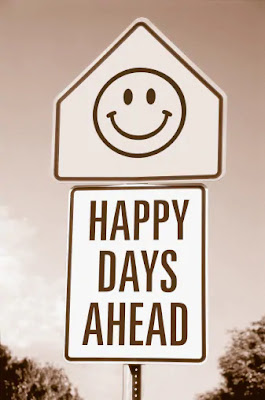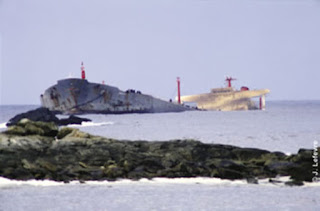Hello Gentle Readers.
In these dark days we should remember to hold on to who we are. I want to share a story my friend Fran Lyngard Hansen shared with me. I did not write it. She is way more eloquent than I.
Please read and think.
My Dad grew up in the Great Depression. In 1934 when he was nine years old, he had to take a job selling newspapers so that he could buy two loaves of bread a day which kept his family alive. His mother lost her job when his older brother came down with Scarlet Fever and she couldn’t leave the house. Without money, they were starving. My Dad moved in with his Aunt and every day after school he peddled newspapers until he had enough money to buy the bread. He’d leave it on the porch of his house, wave at his Mom, and head back to his Aunts. He couldn’t go inside because the last thing his mother needed was two critically ill children. Her face in the window haunted him all his life.
Fast forward to 2020 a time of world pandemic, unexpected job loss, crashing stock markets and palpable fear. The woman before me, standing on a street corner in Yerevan, Armenia was probably younger than I am (and I’m almost 62) but her life had not been an easy one, that was so clear. She was what my father used to call, “the little people;” the ones that it would appear life or luck has forgotten.
All my life, I watched my father look out for those folks. He knew what it was like to be poor and hungry, and he had a great deal of empathy for the underdog. He didn’t always give them money, though sometimes he did buy food, but he always flashed his wide grin and stood for a moment to chat with them. He gave the people he spoke with the dignity to be seen, to be considered a human being, to feel valued, even if only for a moment or two. I grew up in a small town of 13,000 and he worked at the Post Office, so he knew everyone, especially all the “little people.”
The woman before me had tattered clothing, grey hair, she was thin and pale, and she was cold on this windy, spring morning. In her hand was a worn, blue cleaning basin filled with tiny little bouquets of crocus, no doubt from her lawn or an obliging field. Her eyes were pleading with mine to buy some. The delicate little flowers were of purples and pinks. She held one up and said something in Armenian. Their color stood out in contrast to her dull, grey sweater. I smiled warmly at her and she took three steps towards me. They weren’t the steps of someone who wanted me to buy flowers; they were the shuffle of a desperate human being. I smiled again and entered the grocery store, but I did put up one finger as a sign to her that I’d be right back.
I picked up a few groceries, carefully took out a 1,000 dram note ($2.00) and put it in my pocket. I wanted to have the money ready. I was afraid if she saw my wallet, she would ask for more.
I came out of the store. She wasn’t there. In her place was another flower seller. There is a flower market in Yerevan, on Tuesday morning. I’m sure he had been there. Both individuals and businesses can purchase flowers there. When the wholesale market is open, some people invest a little money in fresh flowers and then peddle them on the street. That’s why there are so many vendors on Tuesdays.
I’d seen this man before. He has an ancient baby carriage that long ago stopped holding children. It’s the kind with huge wheels and large springs to keep the ride smooth for a child. I’d guess it was 50 years old or more. The fabric was dirty and ripped. On top of the carriage he’s placed a small piece of plywood and on top of that, left-over milk bottles, and an assortment of old plastic pails in which he puts a few flowers to sell.
This man, another one of the “little people” always has a smile on his face, but he too is worn down by life. His clothes are tattered, he is thin and pale, but he doesn’t let his desperation show as much as the older woman. Since I couldn’t find her, I picked out some tulips and asked him how much they cost. He charged me the 1,000 Dram note. As soon as I took the tulips, he thanked me warmly and then pushed his carriage down the street. I know he will continue to keep walking until all his flowers are sold. I hope he got home before dark.
I took another 1,000 Dram note and put it in my pocket, then took a little stroll down the street to see if I could find the older woman. She was easy to spot as she was patrolling the sidewalk, stopping and asking every single person if they’d purchase her flowers. She was not only being ignored – she was shunned. No one spoke to her. No one smiled. They were all walking past trying not to make eye contact. They pretended she wasn’t there.
When she saw me, I waved to her and she bolted towards me. I saw a few people shake their heads as though to say, “she is a sucker.” But I don’t feel like one. I bought two bouquets.
In these times of uncertainty, as the world, its people and economy quake while a pandemic upset our lives, I think genuine human kindness is more important than ever before. There were so many of us on the edge before the pandemic and as it proceeds there will be many more who hit the skids. Today its these flower sellers trying to get by. Tomorrow who knows who it will be? You? Me? A friend or relative?
I spent a total of $4.00 today. I know these little crocuses will only last a day or two, but I can hope that the pasta, or potatoes the poor older woman will buy with my money might last a few days and tide her over until more flowers bloom. I wonder if my tulip man has children he’s trying to feed.
As we descend into parts unknown, as we buy ourselves additional groceries to put away in case we can’t leave our homes, as we provide for our families and worry about our futures, I hope we will all be able to share more and more stories of those among us who grab some extra rice and give it to their local shelter, or pop an extra bag of dog food into their cart and drop it off for the homeless animals, or who stretch past their comfort zone and look a homeless person in the eye. I know the poor are always with us, but in these times, they will be the first to have the full impact of a suffering economy. If it were my friend or relative on the street corner, I know I’d be hoping that someone would extend them a warm smile and a helping hand, and maybe even some spare change.
In times of trouble, it’s helpful to return to history, to remember and observe how those that came before us survived wars, famines, political upheaval, earthquakes, disasters of all kinds. Because when we look back -we’ll see ourselves. We’ll realize that even though we’re suffering in ways we could never imagine, people before us have suffered too – and survived. My father helped others because he had suffered as a child. He taught me so much about compassion, but mostly he helped me see as I grew up that we are all one people and we must care for one another. Otherwise, there is less value in our lives.
#sharedbyafriend #yerevan #coronavirus















































